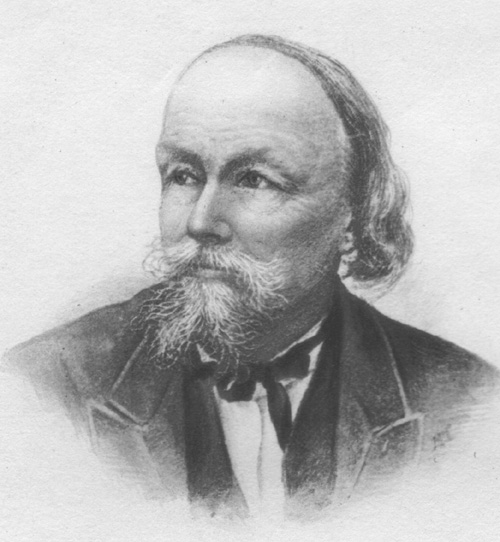
1900
Random Recollections
|
|
William Tinsley (1831-1902) was a publisher who counted many famous Victorian novelists among his clients. But he only published one of Collins’s novels – The Moonstone – though he wanted to publish more. His mention of Wilkie – four pages out of 700 in his two volume book Random Recollections of an Old Publisher – concerns only the deal he did over The Moonstone. Sadly he did not enlarge his account with any letters – only one from Collins to Tinsley is known. |
WILKIE COLLINS.
I published that very clever novel by Wilkie Collins, called "The Moonstone."
It had appeared as a serial in "All the Year Round," and that story and "The Woman in White" were two of the very few exceptions of the many serials that were printed in that excellent periodical which increased the circulation to any great extent, and perhaps did more for it than any other novel that was printed in it as a serial before or since, not excepting "Great Expectations," by the famous editor himself. During the run of "The Moonstone" as a serial there were scenes in Wellington Street that doubtless did the author’s and publisher’s hearts good. And especially when the serial was nearing its ending, on publishing days there would be quite a crowd of anxious readers waiting for the new number, and I know of several bets that were made as to where the moonstone would be found at last. Even the porters and boys were interested in the story, and read the new number in sly corners, and often with their packs on their backs, but "The Woman in White" was, I think, rather over the heads of those boys and men.
Wilkie Collins drove rather a hard bargain with me for the right to print and publish an edition of fifteen hundred copies of "The Moonstone," in three volumes. I was not very certain I should sell the whole of the edition, although many more copies in the three-volume form had been sold of "The Woman in White" and "No Name." The fact was, as I have previously mentioned, purchasers of three-volume novels had greatly reduced their subscriptions in comparison with a few years before. However, I did very well out of my agreement for the first edition of "The Moonstone." I sold the fifteen hundred copies all out; and as the type was all standing, Mr. Collins was most anxious I should print another edition of five hundred copies. I offered to do so, with the understanding I should pay a certain sum per hundred when I had sold them; but he would not accept my terms, and wanted me to pay him for the right to sell the five hundred copies, whether I disposed of them or not. So all negotiations were broken off, and the business seemed at an end.
But, much to my surprise, the printer of "The Moonstone" came to me a few days after my failure to negotiate with Mr. Collins, and asked me if I would allow an edition to be printed off the type, which stood in my name, for another publisher.
I said I had no objection, but that whoever used the type must pay me a certain proportion of the cost of the setting.
I ought to mention that all through the business I had been dealing with Mr. Collins’s solicitors, and not with him direct, so that I am willing to suppose that it was the said solicitors and not Mr. Collins who were stupid enough to suppose that I should pay for the setting up of type for other people’s benefit.
And so it seemed as if the book would not be reprinted in the three-volume form at all. However, in a day or two there was an excellent review of the book in The Times, and Mr. Collins sent to his advisers to accept the terms I had at first proffered.
But I had had a deal of trouble in the matter, and, moreover, did not consider I had been used any too, well, so would not agree to reprint the book until I had reduced the terms about fifty pounds.
I heard afterwards, on the best authority, that Charles Dickens had a hearty laugh about this disagreement with Collins over "The Moonstone." In fact, Mr. W. H. Wills told me that Mr. Collins was rather a hard bargain-driver over his serial rights. The story of "The Moonstone" was dramatised and brought out at the Olympic. It was but only moderately successful, although the two principal male characters were powerfully played by Henry Neville and Tom Swinburne. Poor Bill Hill played the Butler, and it suited him all round. He looked wine and talked wine. Hill’s full-moon face was a picture of mirth in such parts.
From William Tinsley Random Recollections of an Old Publisher London 1900 Vol I pp114-117.